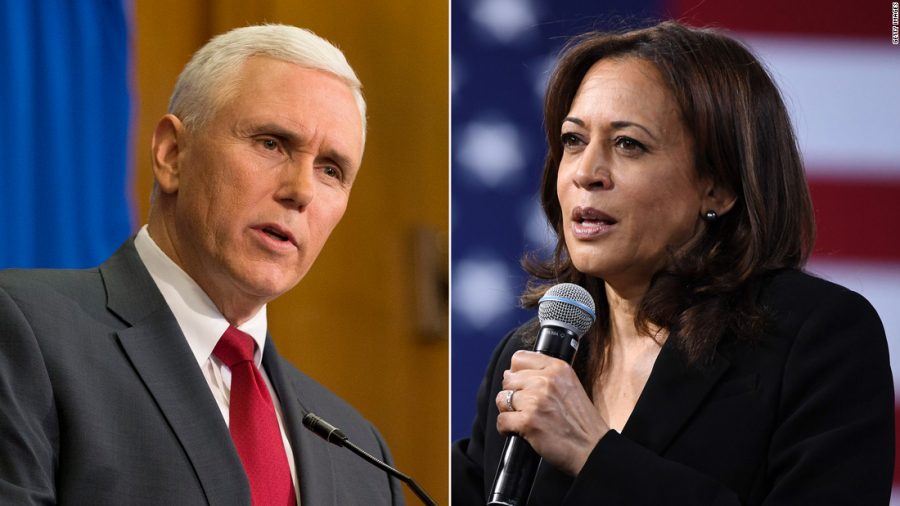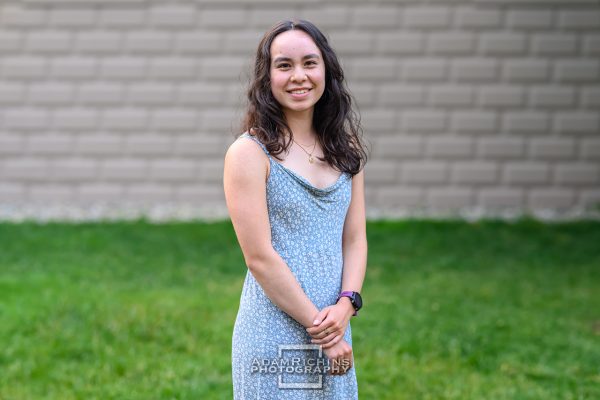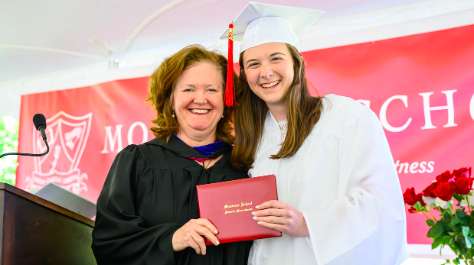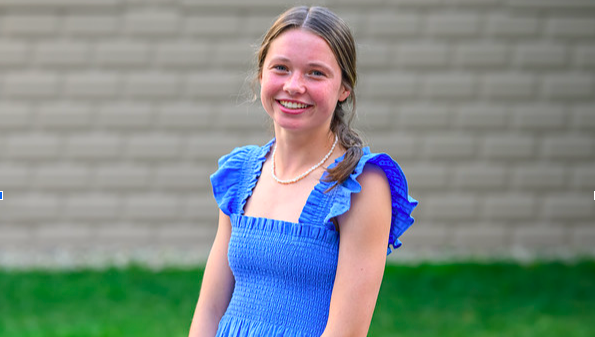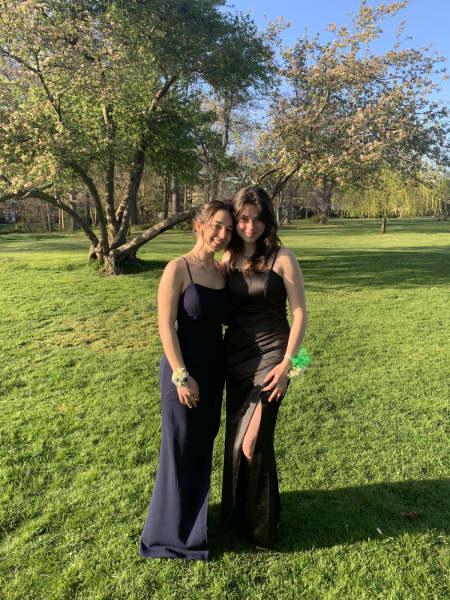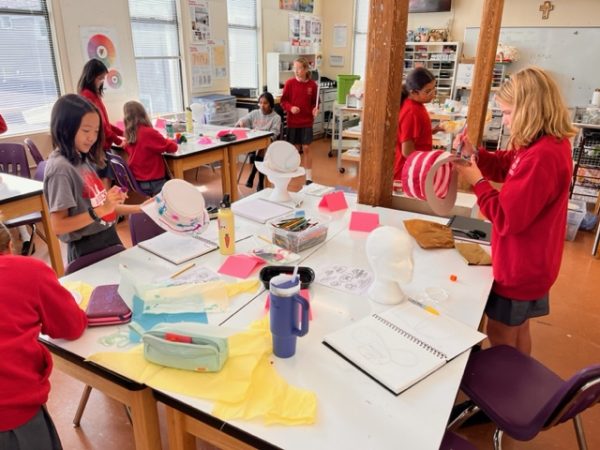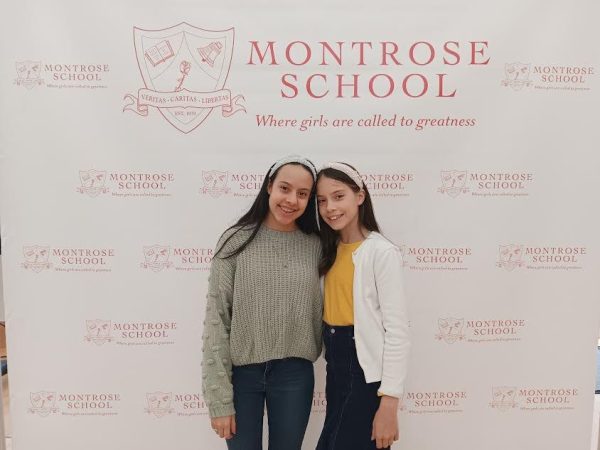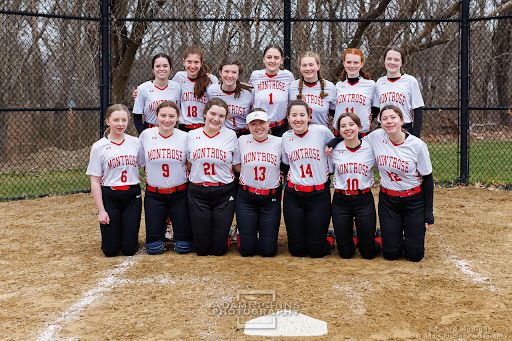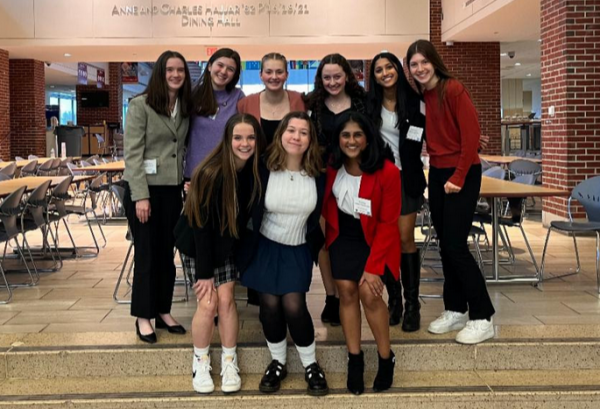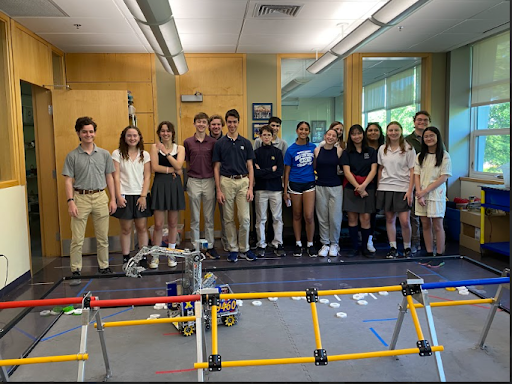The 2020 Presidential Election: The First Presidential and Vice Presidential Debates
Presidential Debate: Tuesday, September 29 9:00 PM EST
ABC News host and Former White House Communications Director George Stephanopoulos called the September 29 Presidential Debate “the worst presidential debate I have ever seen in my life.” Many politicians and citizens across the United States agreed with this statement. The AP Language and Composition class was asked to observe signs of respect and contempt from each candidate throughout the debate. President Trump and former Vice President Biden started off the debate by greeting each other appropriately, everything went downhill soon afterwards. Moderator Chris Wallace started by asking a question about the current Supreme Court vacancy and both candidates offered a thorough response, respecting each other’s time. Five minutes later, interruptions and chaos erupted. Both presidential candidates interrupted each other and failed to show respect throughout the debate.
The two candidates were supposed to discuss six major topics: the Coronavirus, the economy, the Supreme Court, race and violence throughout America, Trump’s and Biden’s records, and election integrity (NY Times). Most of the debate was full of back and forth banter; however, both VP Biden and President Trump were able to show their perspectives on each topic.
President Trump has faced criticism about his administration’s approach to handling the Coronavirus pandemic. His decision to reopen schools and reluctance to wear a mask has left many in doubt about how seriously he takes the pandemic. At the debate, he stated that his early restrictions on travel from China and his push for a vaccine have saved thousands of lives (NY Times). Former VP Biden talked about making the future vaccine free for all, keeping schools closed until cases go down, and imposing a nationwide mask mandate.
While most of the debate’s initial goals were lost amidst interruptions and contentious banter, one of the distinguishing moments was the President’s response to the question of his role in addressing white supremacy and systematic racism in the nation. Wallace asked the President: “You have repeatedly criticized the vice president for not specifically calling out Antifa and other left wing extremist groups. But are you willing tonight to condemn white supremacists and militia groups and to say that they need to stand down and not add to the violence in a number of these cities as we saw in Kenosha and as we’ve seen in Portland.” When both Wallace and Biden urged him to formally condemn the group Proud Boys, the President said: “Proud Boys, stand back and stand by. But I’ll tell you what somebody’s got to do about Antifa and the left because this is not a right wing problem, this is a left wing…” Following this remark, the Proud Boys organization considered this by the President as an endorsement and displayed his words said at the debate on their website. Those who disapproved of the President’s remark consider the president either blindly enabling racism or imprudent in not speaking strongly against an issue that should garner widespread support rather than partisan responses.
The rest of the debate followed with more name calling and interruptions. As the debate came to a close with the topic of election integrity and the question of whether the President would comply with a peaceful power transfer if he loses the election, the President responded: “I am 100% on board. But if I see tens of thousands of ballots being manipulated, I can’t go along with that.” Wallace then asked Biden if he would urge voters to stay calm while votes were being counted. Biden urged citizens to vote and exercise their right to democracy. He also agreed to a peaceful acceptance of the result of the election no matter who wins. Similar to the rest of the debate, the candidates began talking over each other, at which point moderator Wallace had to end the debate and the candidates walked off the stage.
On October 2nd, the non-partisan Commission of Presidential Debates (CPD) canceled the October 15th presidential debate following President Trump’s refusal to participate in a virtual debate with Vice President Biden. Both candidates will hold individual alternative plans instead of the October 15th presidential debate. The Commission of Presidential Debates announced, “It is now apparent there will be no debate on Oct. 15, and the CPD will turn its attention to preparations for the final presidential debate scheduled for Oct. 22.”
Vice Presidential Debate: Wednesday October 7 9:00 PM EST
While most vice presidential debates are not usually weighted as significantly as the presidential debates, the October 7th Vice Presidential Debate between Democratic candidate Senator Kamala Harris and Republican candidate Vice President Mike Pence revealed more significance than in past years. With the ages of both presidential candidates in mind (Biden 77, Trump 74), the Vice President of the new administration could likely play a larger role than in the past. The American people seem to realize the importance of a strong vice president, as more than 57.9 million people watched the 2020 Vice Presidential Debate (Los Angeles Times) in contrast to the 37.2 million who viewed the 2016 Vice Presidential Debate.
Both candidates in the Vice Presidential Debate were generally more respectful while still holding firm to their beliefs and covering issues in a more productive manner than the presidential candidates. Moderator Susan Page began by telling the viewers of the extra safety precautions the candidates and audience were undertaking after reports that the Coronavirus had spread beyond the President and First Lady throughout the White House staff following the presidential debate.
Page’s first question was directed towards Senator Harris about how the Biden-Harris administration would change the way the Trump-Pence administration handled their response to the Coronavirus pandemic. Senator Harris responded by criticizing the President and Vice President’s approach to handling the virus, emphasizing the high number of infected Americans and the total loss of US jobs as well as lives. She said: “On January 28, the Vice President and the President were informed about the nature of this pandemic. They were informed that it’s lethal in consequence, that it is airborne, that it will affect young people, and that it would be contracted because it is airborne. And they knew what was happening, and they didn’t tell you. Can you imagine if you knew on January 28, as opposed to March 13, what they knew and what you might have done to prepare? They knew and they covered it up.” Senator Harris proceeded to announce that she and Vice President Biden plan to enact a national strategy for free testing, contact tracing, and vaccination.
Vice President Pence, leader of the president’s Coronavirus Task Force, responded by discussing the Trump Administration’s efforts to develop a vaccine: “the reality is that we’re going to have a vaccine, Senator, in record time, in unheard of time, in less than a year. We have five companies in phase three clinical trials. And we’re right now producing tens of millions of doses…The reality is that we will have a vaccine, we believe, before the end of this year, and it will have the capacity to save countless American lives.” Vice President Pence also criticized Senator Harris for continuing to undermine the American faith in the vaccine. He said: “the fact that you continue to undermine public confidence in a vaccine, if the vaccine emerges during the Trump administration, I think is unconscionable. And Senator, I just ask you, stop playing politics with people’s lives.” Pence also added that the plan the Biden-Harris administration proposed looked a lot like what the Coronavirus Task Force has already done which includes testing, contact tracing and vaccinations. “Frankly, when I look at the Biden Harris plan that talks about testing, contact tracing, and PPE, it looks a little bit like plagiarism.”
Next, moderator Page asked the question of whether Breonna Taylor was served justice or not, in last month’s trial when the officers who caused her death were not indicted by a grand jury. Senator Harris condemned the recent legal case: “I believe strongly that, first of all, we are never going to condone violence, but we always must fight for the values that we hold dear, including the sight to achieve our ideals…We need reform of our policing in America and our criminal justice system…George Floyd would be alive today if we did that.” In turn, Vice President Pence mentioned Senator Tim Scott’s police reform bill that Harris filibustered. “Scott’s bill “doesn’t meet the moment, and I urge him to adopt our bill as a much more relevant opportunity to correct what’s wrong with the system” (The Hill) was her later remark. Pence said: “Senator Tim Scott tried to pass a police reform bill, brought together a group of Republicans and Democrats – Senator Harris, you got up and walked out of the room.” The Vice President also talked about the importance of supporting the police as well as African Americans: “We do not have to choose between supporting law enforcement, providing public safety, and supporting our African American neighbors and all other minorities.”
After discussing a series of other topics including climate change, the new Supreme Court Justice and her judicial decisions that could undermine the hallmark 1973 US Supreme Court case Roe v. Wade, moderator Page read the final question, Brecklynn Brown, an 8th grader, asked: “When I watch the news, all I see is arguing between Democrats and Republicans. When I watch the news, all I see is citizens fighting against citizens. When I watch the news, all I see are two candidates from opposing parties trying to tear each other down. If our leaders can’t get along, how are the citizens supposed to get along?”
Vice President Pence responded by commending Brecklynn’s question and referred to the relationship between the late US Supreme Court Justices, Justice Ruth Bader Ginsburg and Justice Antonin Scalla. While both justices were on polar political sides, they maintained a close friendship while disagreeing vigorously and respectfully. He continues: “here in America, we can disagree. We can debate vigorously as Senator Harris and I have on the stage tonight. But when the debate is over, we come together as Americans…We love a good argument. We always come together and are always there for one another. And we’ve especially learned that during the difficulties of this year.”
Senator Kamala Harris responded by appreciating Brecklynn’s initiative. Senator Harris responded: “I hear your words, Brecklynn, I know our future is bright because it is that perspective on who we are and who we should be – that is a sign of leadership and it’s something we should all aspire to be.” Senator Harris said that Biden has set a good example of what a leader should be, adding: “And so, Brecklynn, when you think about the future, I do believe the future is bright. And it will be because of your leadership, and it will be, because we fight for each person’s voice through their vote. And we get engaged in this election, because you have the ability through your work, and through, eventually, your vote. To determine the future of our country, and what its leadership looks like.”
Alongside Brecklynn, many people across America don’t know how to approach today’s polarized political atmosphere. For some, we may feel scared to share our political perspectives especially, with people from all political spectrums, how do we maintain our own beliefs while confronting people with opposing views?
It is important to recognize one must not invalidate another based on political beliefs. If you believe all humans are equal, and you invalidate another person because of their perspective, you also invalidate your own dignity as well as everyone you know. One of the greatest gifts we have is our ability to have a good conversation that can either alter or enhance people’s beliefs. When conversations become inflammatory or offensive, nothing gets resolved. Instead, before a political discussion, we need to recognize each other’s humanity and strive to find common ground. Try to understand how someone thinks a certain way; ask questions that demonstrate you honor their views and are open. Look for common ground and build strong relationships. With that strong foundation, perhaps you can influence others’ views, but you can be assured that you can build relationships and community. While we may often hesitate to initiate a conversation, we need to recognize that through a mutual understanding and respect of opposing viewpoints, we are able to grow as an individual and as a country. As a generation that cares deeply about the political issues in our country, it’s important that we participate in any way we can. Remember to register to vote if you are 16 or older and look for opportunities to engage in the election process this year. Also, join us for Mrs. Whitlock’s Life Compass Portrait speech about Courageous Conversations on October 20 to learn more about the strategies we are learning in 11th grade to improve our approach to building a more civil civic culture.
Erica Brown ’22, Spandana Vagwala ’22, Alanna Hyatt ’22, & Faith Chen ’22, Co-Assistant Editor-in-Chiefs, Co-Sports Editor, & Co-Social Media Editor
22ebrown@montroseschool.org, 22svagwala@montroseschool.org, 22ahyatt@montrosechool.org, 22fchen@montroseschool.org,

